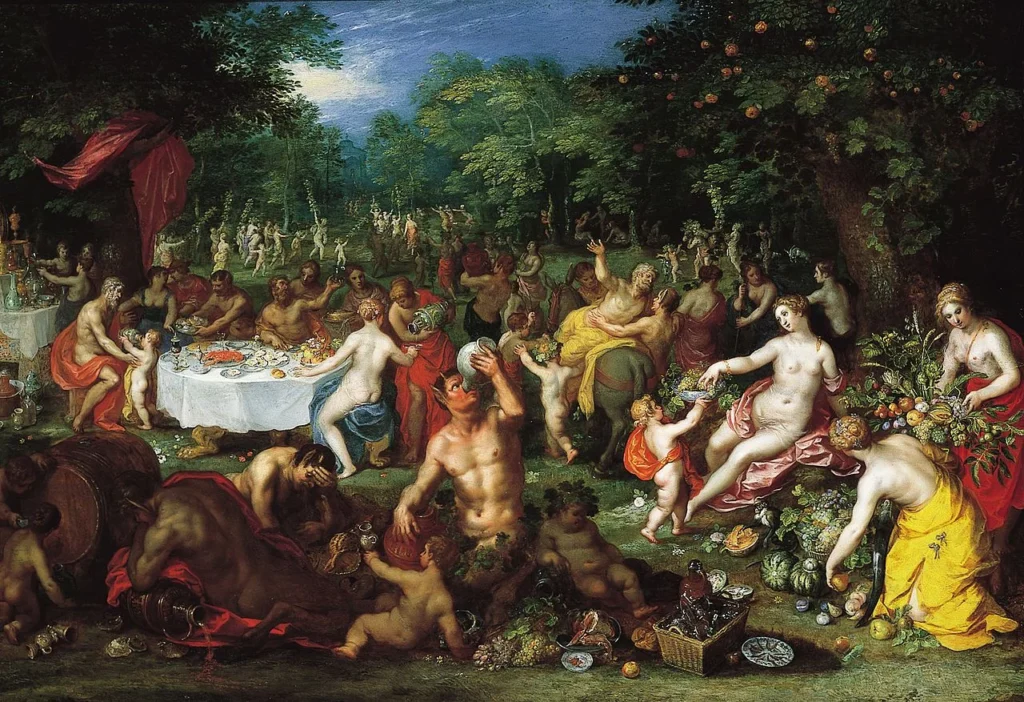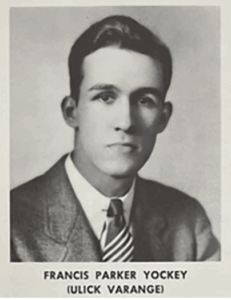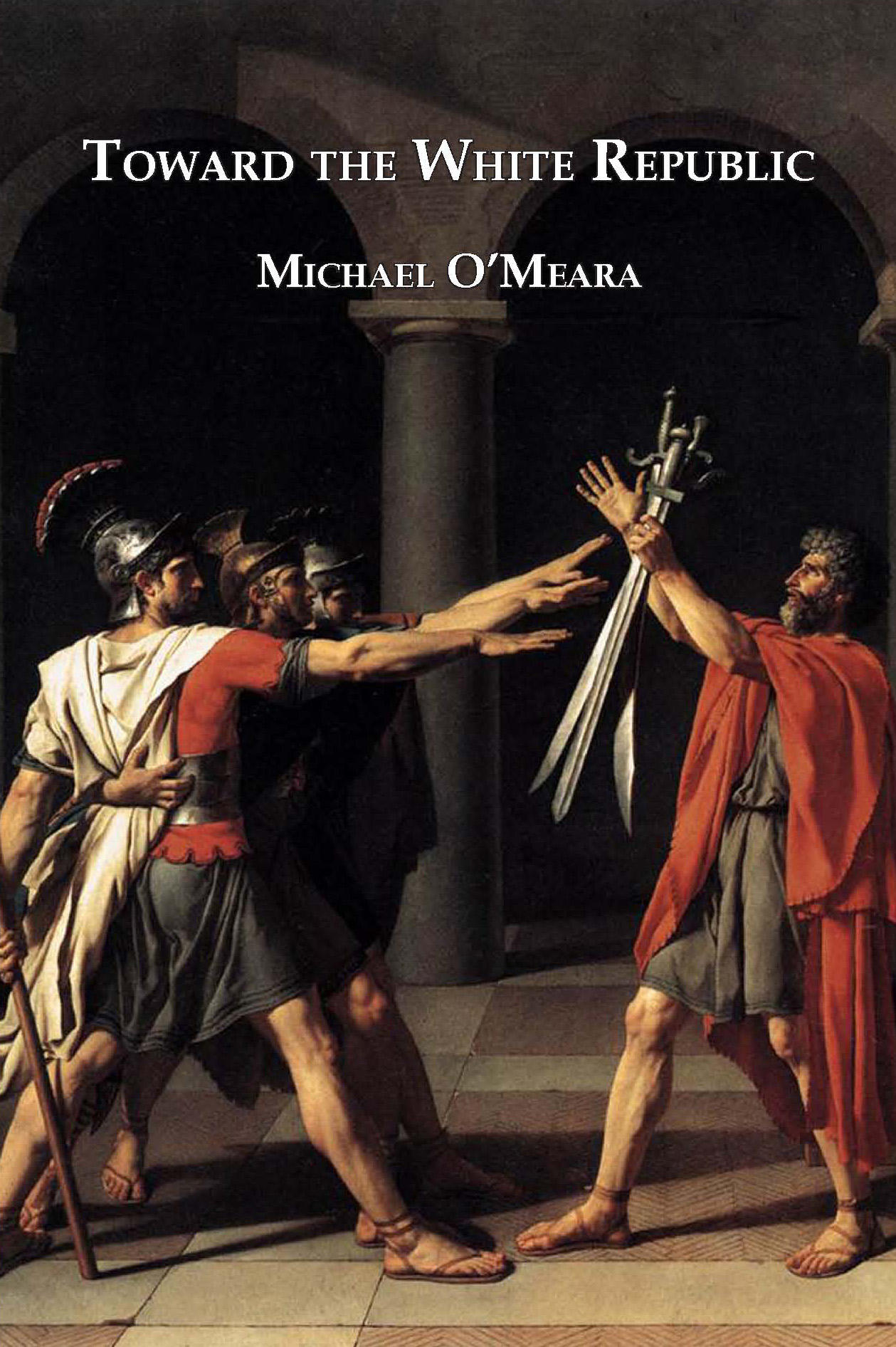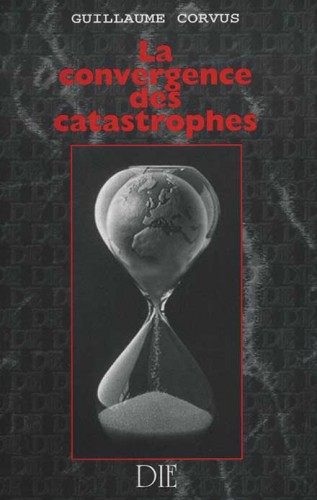revolution is destroying the West
by Michael O’Meara
Sexe et dévoiement
Éditions du Lore, 2011
 Four years after Guillaume Faye’s La Nouvelle question juive (The New Jewish Question, 2007) alienated many of his admirers and apparently caused him to retreat from identitarianism and Euro-nationalism, his latest work signals a definite return, reminding us of why he remains one of the most creative thinkers defending the future of the white race.
Four years after Guillaume Faye’s La Nouvelle question juive (The New Jewish Question, 2007) alienated many of his admirers and apparently caused him to retreat from identitarianism and Euro-nationalism, his latest work signals a definite return, reminding us of why he remains one of the most creative thinkers defending the future of the white race.
In this 400-page book, which is an essay and not a work of scholarship, Mr. Faye’s central concern is the family, and the catastrophic impact the rising number of divorces and broken households is having on white demographic renewal. In linking family decline to its demographic and civilizational consequences, he dissects the larger social pathologies associated with the “inverted” sexuality now disfiguring European life. These pathologies include the de-virilization and feminization of white men, the normalization of homosexuality, feminist androgyny, Third-World colonization, miscegenation, the loss of bio-anthropological norms (like the blond Jesus)—and all that comes with the denial of biological reality.
At the core of Mr. Faye’s argument is the contention that sexuality constitutes a people’s fundamental basis; it governs its reproduction and ensures its survival. Thus, it is the key to any analysis of contemporary society.
As the ethologist Konrad Lorenz and the anthropologist/social theorist Arnold Gehlen (both of whom have influenced Mr. Faye) have demonstrated, there is nothing automatic or spontaneous in human sexuality, as it is in other animals. Man’s body may be like those of the higher mammals, but it is also a cultural, plastic one with few governing instincts. Socioeconomic, ideological, and emotional imperatives play a major role in shaping human behavior, especially in the higher civilizations.
Given, moreover, that humanity is no monolith, there can be no universal form of sexual behavior, and thus the sexuality, like everything else, of Europeans differs from that of non-Europeans. In the United States and Brazil, for example, the sexual practices and family forms of blacks are still very unlike those of whites, despite ten generations in these European-founded countries. Every form of sexuality, Mr. Faye argues, stems from a specific bioculture (a historically-defined “stock”), which varies according to time and people. Human behavior is thus for him always the result of a native, inborn ethno-psychology, historically embodied in cultural, religious, and ideological superstructures.
The higher, more creative the culture the more sexuality also tends to depend on fragile, individual factors—such as desire, libido, self-interest—in contrast to less developed cultures, whose reproduction relies more on collective and instinctive factors. High cultures consequently reproduce less and low cultures more, though the latter suffer far greater infant mortality (an equilibrium that was upset only in the 20th century, when high cultures intervened to reduce the infant mortality of lower cultures, thereby setting off today’s explosive Third-World population growth).
Despite these differences and despite the world’s great variety of family forms and sexual customs, the overwhelming majority of peoples and races nevertheless prohibit incest, pedophilia, racially mixed marriages, homosexual unions, and “unparented” children.
By contravening many of these traditional prohibitions in recent decades, Western civilization has embarked on a process that Mr. Faye calls derailment, which is evident in the profound social and mental pathologies that follow the inversion of “natural” (i.e., historic or ancient) norms—inversions that have been legitimized in the name of morality, freedom, and equality.
Sexe et dévoiement is an essay, then, about the practices and ideologies currently affecting European sexuality and about how these practices and ideologies are leading Europeans into a self-defeating struggle against nature—against their nature, upon which their biocivilization rests.
The Death of the Family
Since the Cultural Revolution of the 1960s, expressions of egalitarianism and a nihilistic individualism have helped undermine the family, bringing it to the critical stage it has reached today. Of these, the most destructive for Mr. Faye has been the ideology of libidinal love (championed by the so-called “sexual liberation” movement of the period), which confused recreational sex with freedom, disconnected sex from reproduction, and treated traditional social/cultural norms as forms of oppression.
The “liberationists” of the 1960s—the first generation raised on TV—were linked to the New Left, which saw all restraint as oppressive and all individuals as interchangeable. They were convinced that all things were possible, as they sought to free desire from the “oppressive” mores of what Mr. Faye calls the “bourgeois family.”
This ’60s-style sexual liberation, he notes, was “Anglo-Saxon” in origin, motivated by a shift from prudery to the opposite extreme. Originally, this middle-class, Protestant prudery confined sexuality to the monogamous nuclear family, which represented a compromise between individual desire and familial interests. This compromise preserved the family line and reared children to carry it on.
In the 1960s, when the Boomers came of age, the puritans passed to the other extreme, jettisoning their sexual “squeamishness” and joining the movement to liberate the libido. In practice, this meant abolishing conjugal fidelity, heterosexual dominance, “patriarchy,” and whatever taboos opposed the feel-good “philosophy” of the liberationists. As the Sorbonne’s walls proclaimed in ‘68: “It’s prohibited to prohibit.” The “rights” of individual desire and happiness would henceforth come at the expense of all the prohibitions that had formerly made the family viable. Mr. Faye does not mention it, but American-style consumerism was beginning to take hold in Western Europe at the same time, promoting self-indulgent materialism and the pursuit of pleasure.
Americans pioneered the ideology of sexual liberation, along with gay pride and the porn industry, but a significant number of “ordinary” white Americans resist their elites’ anti-traditional sexual ideology. Salt Lake City here prevails over Las Vegas. The Washington Leviathan nevertheless continues to use these ideologies and practices to subvert non-liberal societies, though not always with success: The Russians have rebuffed “international opinion” and refuse to tolerate gay pride parades.
Europeans, by contrast, have been qualitatively more influenced by the “libertine revolutionaries,” and Mr. Faye’s work speaks more to Europeans than to Americans, though it seems likely that the European experience will sooner or later come to the United States.
Against the backdrop of ’60s-style sexual liberation, personal sexual relations were reconceived as a strictly individualistic and libidinal “love,” based on the belief that this highly inflated emotional state was too important to limit to conjugal monogamy. Marriages based on impulsive sexual attractions and the “hormonal tempests” they set off have since become the tomb not just of stable families, but increasingly of Europe herself.
For with this adolescent cult of sexualized love that elevates the desires of the solitary individual above his communal and familial duties, there comes another kind of short-sighted, feel-good liberal ideology that destroys collective imperatives: the cult of human rights. This flood of discourses and laws promoting brotherhood and anti-racism are synonymous with de-virilizition, ethnomaschoism, and the destruction of Europe’s historic identity.
Romantic love, which is impulsive on principle, and sexual liberation have destroyed stable families. This “casino of pleasure” may be passionate, but it is also ephemeral and compelled by egoism. Indeed, almost all sentiments grouped under the rubric of love, Mr. Faye contends, are egoistic and self-interested. Love in this sense is an investment from which one expects a return—one loves to be loved. A family of this kind is thus one inclined to allow superficial or immediate considerations to prevail over established, time-tested ones. Similarly, the rupture of such conjugal unions seems almost unavoidable, for once the pact of love is broken—and a strictly libidinal love always fades—the union dissolves.
The death of the “oppressive” bourgeois family at the hands of the emancipation movements of the ’60s has given rise to unstable stepfamilies, no-fault divorce, teenage mothers, single-parent homes, abandoned children, homosexual “families,” unisex ideology, new sexual categories, and an increasingly isolated and frustrated individual delivered over almost entirely to his own caprices.
The egoism governing such love-based families produces few children. To the degree that married couples today even want children, it seems to Mr. Faye less for the sake of sons and daughters to continue the line and more for the sake of a baby to pamper, a living toy that is an adjunct to their consumerism. And since the infant is idolized in this way, parents feel little responsibility for disciplining him. They subscribe to the “cult of the child,” which considers children to be “noble savages” rather than beings that need instruction.
The result is that children lack self-control and an ethic of obedience. Their development is compromised and their socialization neglected. These post-’60s families also tend to be short lived, which means children are frequently traumatized by broken homes, raised by single parents or in stepfamilies, where their intellectual development is stunted and their blood ties confused. Without stable families and a sense of lineage, they lose all sense of ethnic or national consciousness and fail to understand why miscegenation and immigration ought to be opposed. The destruction of stable families, Mr. Faye surmises, bears directly on the present social-sexual chaos and the impending destruction of Europe’s racial stock.
Against the sexual liberationists, Mr. Faye upholds the model of the past. Though perhaps no longer possible, the stable couples of the bourgeois family structure put familial and communal interests over amorous ones, to the long-term welfare of both the couple and the children. Conjugal love came, as a result, to be impressed with friendship, partnership, and habitual attachments, for the couple was not defined as a self-contained amorous symbiosis, but as the pillar of a larger family architecture. This made conjugal love moderate and balanced rather than passionate. It was sustained by habit, tenderness, interest, care of the children, and la douceur du foyer (“the comforts of home”). Sexual desire remained, but in most cases declined in intensity or dissipated in time.
This family structure was extraordinarily stable. It assured the lineage, raised properly-socialized children, respected women, and won the support of law and custom. There were, of course, compromises and even hypocrisies (as men satisfied libidinal urgings in brothels), but in any case the family, the basic cell of society, was protected—even privileged.
The great irony of sexual liberation and its ensuing destruction of the bourgeois family is that it has obviously not brought greater happiness or freedom, but rather greater alienation and misery. In this spirit, the media now routinely (almost obsessively) sexualizes the universe, but sex has become more virtual than real: There is more pornography but fewer children. Once the “rights” of desire were emancipated, sex took on a different meaning, the family collapsed, sexual identity was increasingly confused, and perversions and transgressions became greater and more serious. As everyone set off in pursuit of an illusory libidinal fulfillment, the population became correspondently more atomized, uprooted, and miscegenated. In France today, 30 percent of all adults are single and there are even reports of a new “asexuality” in reaction to the sexualization of everything.
There is a civilization-destroying tragedy here: for, once Europeans are deprived of their family lineage, they cease to transmit their cultural and genetic heritage and thus lose all sense of who they are. This is critical to everything else. As the historians Michael Mitterauer and Reinhard Sieder write: “The family is one of the most archaic forms of social community, and at all times men have used the family as a model for the formation of human societies.” The loss of family stability, and thus the collapse of the family as society’s basic cell, Mr. Faye emphasizes, not only dissolves social relations, it brings disorder and makes all tyrannies possible. Once sexual emancipation helps turn society into a highly individualized, Balkanized mass, totalitarianism—not Soviet or fascist, but US progressive—becomes increasingly likely.
The Idolatry of Homosexuality
Homophilia and feminism are the most important children of the cultural revolution. They share, as such, much of the same ideological baggage that denies biological realities and makes war on the family. Mr. Faye claims that in the late 1960s, when homosexuals began demanding legal equality, they were fully within their rights. Homosexuality in his view is a genetic affliction affecting fewer than 5 percent of males, but he does not object to homosexuals practices within the privacy of the bedroom. What he finds objectionable is the confusion of private and public realms and the assertion of homophilia as a social norm. Worse, he claims that in much elite discourse, homosexuals have quickly gone from being pariahs to privileged beings, who flaunt their alleged “superiority” over heterosexuals, who are seen as old-fashioned, outmoded, ridiculous. Heterosexuals are like women who center their lives on the care of children rather than on a career, and are thus something bizarre and implicitly opposed to liberal-style “emancipation.”
Mr. Faye, who is by no means a prude, contends that female homosexuality is considerably different from and less damaging than male homosexuality. Most lesbians, in his view, are bisexual, rather than purely homosexual, and for whatever reason have turned against men. This he sees as a reflection on men. Even in traditional societies, women who engaged in homosexuality retained their femininity and so were not so shocking as their male counterparts. By contrast, male homosexuality was considered abhorrent, because it violated the nature of masculinity, making men no longer “properly” male and thus something mutant. To those who evoke the ancient glories of Athens as a counter-argument, Mr. Faye, a long-time Graeco-Latinist, says that in the period when a certain form of pederasty was tolerated, no adult male ever achieved respectability if he was not married, devoted to the interests of his family and clan, and, above all, was never to be “made of woman,” i.e., penetrated.
Like feminism, homophilia holds that humans are bisexual at birth and, willfully or not, choose their sexual orientation—as if anatomical differences are insignificant and all humans are a blank slate upon which they inscribe their self-chosen “destiny.” This view lacks any scientific credibility, to be sure, even if it is professed in our elite universities. Like anti-racism, it denies biological realities incompatible with the reigning dogmas. Facts, though, have rarely stood in the way of faith or ideology—or, in the way of secular 20th-century ideologies that have become religious faiths.
Despite its progressive and emancipatory pretensions, homophilia, like sexual liberation in general, is entirely self-centered and indifferent to future and past, promoting “lifestyles” hostile to family formation and thus to white reproduction. Homophilia here marches hand in hand with anti-racism, denying the significance of biological differences and the imperatives of white survival.
This subversive ideology now even aspires to re-invent homosexuals as the flowers of society: liberators preparing the way to joy, liberty, fraternity, tolerance, social well-being, good taste, etc. As vice is transformed into virtue, homosexuality allegedly introduces a new sense of play and gaiety to the one-dimensional society of sad, heterosexual males. Except, Mr. Faye insists, there’s nothing genuinely gay about the gays, for theirs is a condition of stress and disequilibrium. At odds with their own nature, homosexuality is often a Calvary—and not because of social oppression, but because of those endogenous reasons (particularly their attraction to their own sex) that condemn them to a reproductive and genetic dead end.
In its public displays as gay pride, hemophilia defines itself as narcissistic, exhibitionist, and infantile, thus revealing those traits specific to its abnormal condition. In any case, a community worthy of itself, Mr. Faye tells us, is founded on shared values, on achievements, on origins—not on a dysgenic sexual orientation.
Schizophrenic Feminism
The reigning egalitarianism is always extending itself, trying to force genuine sexuality, individuality, demography, race, etc., to conform to its tenets. The demand that women have the same legal rights and opportunities as men, Mr. Faye thinks, was entirely just, especially for Europeans—and especially Celtic, Scandinavian, and Germanic Europeans—for their cultures have long respected the humanity of women. Indeed, he considers legal equality the single great accomplishment of feminism. But feminism has since been transformed into another utopian egalitarianism that makes sexes, like races, equivalent and interchangeable. Mr. Faye, though, refuses to equate legal equality with natural equality, for such an ideological muddling denies obvious biological differences, offending both science and common sense.
The dogma that differences between men and women are simply cultural derives from a feminist behaviorism in which women are seen as potential men, and femininity is treated as a social distortion. In Simone de Beauvoir’s formulation: “One is not born a woman, one becomes one.” Feminists therefore affirm the equality and interchangeability of men and women, yet at the same time they reject femininity, which they consider something inferior and imposed. The feminist model is thus the man, and feminism’s New Woman is simply his “photocopy.” In trying to suppress the specifically feminine in this way, feminism aims to masculinize women and feminize men in the image of its androgynous ideal.
This is like the anti-racist ideal of the mixed race or half-caste. This unisex ideology characterizes the mother as a slave and the devoted wife as a fool. In practice, it even rejects the biological functions of the female body, aspiring to a masculinism that imitates men and seeks to emulate them socially, politically, and otherwise. Feminism is anti-feminine—anti-mother and anti-family—and ultimately anti-reproduction.
Anatomical differences, however, have consequences. Male humans, like males of other species, always differ from females and behave differently. Male superiority in achievement—conceptual, mathematical, artistic, political, and otherwise—is often explained away as the result of female oppression. Mr. Faye rejects this, though he acknowledges that in many areas of life, for just or unjust reasons, women do suffer disadvantages; many non-whites practice outright subjugation of women. Male physical strength may also enable men to dominate women. But generally, Mr. Faye sees a rough equality of intelligence between men and women. Their main differences, he contends, are psychological and characterological, for men tend to be more outwardly oriented than women. As such, they use their intelligence more in competition, innovation, and discovery. They are usually more aggressive, more competitive, more vain and narcissistic than women who, by contrast, are more inclined to be emotionally loyal, submissive, prudent, temperate, and far-sighted.
Men and women are better viewed as organic complements, rather than as inferior or superior. From Homer to Cervantes to Mme. de Stäel, the image of women, their realms and their work, however diverse and complicated, have differed from that of men. Women may be able to handle most masculine tasks, but at the same time their disposition differs from men, especially in the realm of creativity.
This is vitally important for Mr. Faye. In all sectors of practical intelligence they perform as well as men, but not in their capacity for imaginative projection, which detaches and abstracts one’s self from contingent reality for the sake of imagining another. This is true in practically all areas: epic poetry, science, invention, religion, even cuisine and design. It is not from female brains, he notes, that have emerged submarines, space flight, philosophical systems, great political and economic theories, and the major scientific discoveries (Mme. Curie being the exception). Most of the great breakthroughs have been made by men and it has had nothing to do with women being oppressed. Feminine dreams are simply not the same as masculine ones, which search the impossible, the risky, the unreal.
Akin, then, in spirit to homophilia, anti-racism, and ’60s-style sexual liberation, feminism’s rejection of biological realities and its effort to masculinize women end up not just distorting what it supposedly champions—women—it reveals its totally egoistic and present-oriented nature, for it rejects women as mothers and thus rejects the reproduction of the race.
Conclusion
Sexe et dévoiement treats a variety of other issues: Christian and Islamic views of sexuality; immigration and the different sexual practices it brings, some of which are extremely primitive and brutal; the role of prostitution; and the effect new bio-technologies will have on sexuality.
From the above discussion of the family, homophilia, and feminism, the reader should already sense the direction of Mr. Faye’s arguments, as he relates individual sexuality to certain macro-changes now forcing European civilization off its rails. His perspective is especially illuminating in that he is one of very few authors who link the decline of the white race to larger questions of civilization, sex, and demography.
Nevertheless I would make several criticisms. Like the European New Right as a whole, he tends to be overly simplistic in attributing the origins of the maladies he depicts to the secularization of certain Christian notions, such as equality and love. He also places the blame for undesirable social/economic developments on cultural/ideological influences rather than depicting a more realistic dialectical relationship of mutual causation. Likewise, he fails to consider the ethnocidal effects on Europe of America’s imperial supremacy, with its post-European rules of behavior and its anti-Christian policies.
But having said that—and after having written reviews of many of Guillaume Faye’s works over the last 10 years, and reading many other books that have made me more critical of aspects of his thought—I think whatever his “failings,” they pale in comparison to the light he sheds on the ethnocidal forces now bearing down on the white race.
_____________
American Renaissance, June 29, 2012






